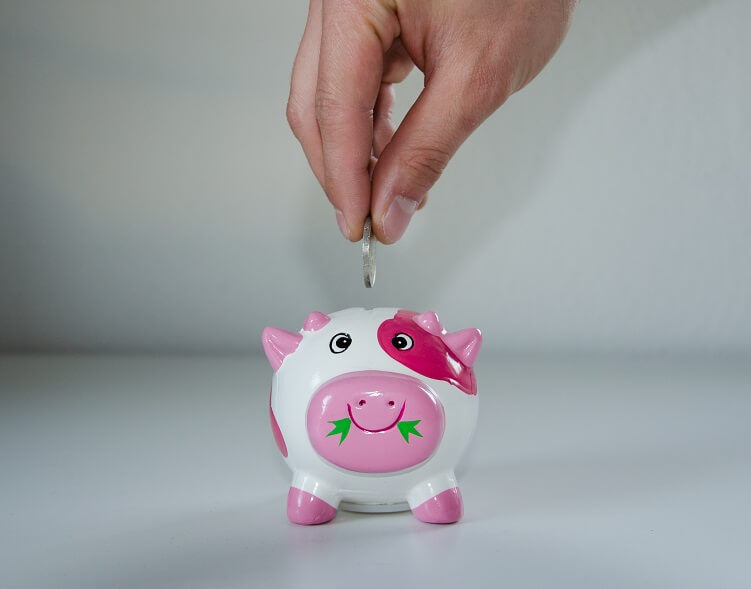Strict Budgeting
When you have a tight budget, it’s vital that it’s properly managed. This is key to feeling confident and in control even if you don’t have a lot of wiggle room. This first set of tips are designed to help you manage a tight budget well.
1. Organise & Prioritise
The most important thing with a tight budget is to be highly organised. You’ve got to know how much money you have and how this needs to be distributed in order to successfully live on a tight budget.
This doesn’t happen with a click of your fingers: you’re going to have to sit down and get everything together. If you find this really hard, talk to a friend or even a professional advisor and see if they can help you to get things organised.
What’s Important To You?
You’ll then be able to look at what your priorities are: what do you have to spend money on, what can you maybe cut back on so you can spend more on something else. Some of this will be common sense, like having food will always be a priority. However, you’ll have to ask questions like, which is more important to me, having data on my phone or having nicer food for meals?
It will depend on your personal spending habits and your budget as to what questions you’ll need to ask, but working out your priorities will help you to know how you want to distribute your budget. You could spend less on your mobile phone contract, for example, but get nicer food for your meal times — or vice versa.
Use Budgeting Sheets
You can easily find budgeting sheets online that are ready-made to help you to manage your budget. They’re a great way to organise all your finances. Make sure you put everything down on your sheet so nothing is missed off — it’s really important to be thorough.
2. Online Banking
Staying organised is a lot easier if you have instant access to your bank account so you can easily see how much money you have and are able to look at your statement.
All the leading banks have online banking systems and mobile banking apps, making it a lot easier to feel in control. Make the most of these or other similar apps that help you to track your spending.
Monzo, for example, is a type of mobile banking that is gaining popularity. It categorises your spending and tracks what you’ve used your money on. It also has automatic organising options so you can save leftover money more easily. It’s a great one to use if you’re on a tight budget.
3. Borrowing Money
Borrowing money is one way to compensate for a tight budget, particularly when something you couldn’t foresee comes up, like an emergency repair.
Short term loans, like payday or instalment loans, allow you to borrow specific amounts of money for a short period, as little as a day and up to three months (with instalment loans). This could be really helpful if a sudden cost arises that needs paying off immediately.
It’s important, if you decide to borrow money, to factor repayments into your budget too. You’ll have to pay back the same amount of money plus interest. Always look at how much you’re going to have to repay in total before you get a loan and decide whether you can afford to pay it back. You should never take out a loan if you’re not confident that you can make the repayments.
If you want more information about short term loans, explore cashasap.co.uk’s website. We’re direct lenders that provide payday and installment loans.
4. Plan Ahead
When you’re living on a tight budget, it’s not always easy to plan ahead. However, it’s important to be aware of what’s coming up in your diary. When is your next payday? When is the next family birthday? When will your car insurance renew? You might want to avoid these questions, as it can be scary to consider them, but being aware of what’s ahead will help you to budget more accurately and avoid problems in the future.
It’s also good to consider when your budget might change. For example, if you know that you might get a promotion soon or, alternatively, if there’s going to be a quieter period at work where you will get paid less.
Saving Money on a Tight Budget
You will also need to consider how much, if any, money that you can save up. This can be hard if you’re on a very tight budget, but if you can put anything aside then it can be really helpful for the future, whether it’s saving up for your child’s birthday present or for a family trip to the seaside.
Even a small amount every week can make a big difference…

5. Small Things Matter
Sometimes living on a tight budget means changing your mindset. It can be easy to spend a few pounds here and there, but frequently doing this makes a big impact. Remember that small things matter.
Small savings on your food shop, saying no to a coffee on your way into work or putting a couple of pounds a week aside can all add up to make a big difference.
Frugal living
The first half of our top tips were all about getting organised in regards to your budget. The second half are practical tips on saving money in day-to-day life through frugal living.
6. Discount Food
Food is always going to be a priority, but the amount a person spends on food will vary widely. There are ways that you can still eat well while saving money and living on a tight budget.
Discount shops
Some shops are known for selling discount food. Sometimes this will be ‘knock-off’ versions of your favourite brands, while other times it might be shops that minimise waste by selling food that is going to go off soon. There are loads of shops out there like these including Aldi, Lidl, Fulton Foods, CostCutter, Nisa, Farm Foods and more.
Shopping around
Don’t be afraid to shop around a few different places to find the best deals. It can take a bit longer, but it’s a good way to save money.
Reduced Food
Almost every supermarket will have a reduced section where food that needs to be used that day, or in the next couple of days, is heavily discounted. You can often find these if you go later in the day.
7. Bills & Monthly Expenses
After creating your budgeting sheet, you’ll be able to see how much you currently spend on bills and similar monthly expenses, like your phone. Take some time to compare the prices of different gas and electricity providers to see if you could switch to get a cheaper price. This could be a really helpful way to save money when living on a tighter budget.
You can do the same with your phone bill, unless you’re tied into a contract. There are lots of options for goodybags which is a good choice if you don’t need a new phone.
Living on a tight budget does mean that you might have to sacrifice on some things in order to be confident with your money management. For example, could you cope with less data and therefore get a cheaper deal on your phone? Or maybe you could see if there are ways you could cut down on your electricity or water usage in your home, like taking shorter showers.
8. Homemade Gifts
When you’re living on a tight budget, birthdays can be hard, especially if you love giving gifts to people. Saving up in advance for birthdays will help, but sometimes it’s not possible to save enough money to be able to buy people presents.
Homemade gifts are a great alternative and often mean more to people because you’ve spent time yourself creating something for them. There are loads of homemade gift ideas that you’ll be able to find online for inspiration!

9. Cheap Activities
When money’s tight, it doesn’t mean you can’t have fun; it just means you have to get more creative! Getting good at finding, or inventing, cheap activities is really helpful — whether it’s for your kids or for a date
This could include visiting museums (which are often free), creating obstacle courses in your garden or playing football in the park. Get creative with your ideas and you’ll still be able to have plenty of fun without spending much money.
10. Waste Not, Want Not
Avoid waste and you’ll save a lot of money. This applies to everything that you might throw away from eating leftover food to making sure you use all the shampoo in the bottle.
Food
Try to buy and cook only the amount of food that you will eat. Creating a meal plan for the week can be really helpful in doing this. It can also be a good idea to cook in bulk and then put spare portions into the freezer. Put them in pots of the right portion sizes so they’re easy to serve up without wasting anything.
If you cook more than you need, put it in the fridge or freezer and have it for lunch or dinner later in the week. You could always have a leftovers night once a week to use up any spare food.
Bathroom
In the bathroom, you should take a similar stance. When you’re on a tight budget, only buy products you need and use, and be sure to use the right amounts. A lot of people use more shampoo than they need, for example, which means you spend more money on it than necessary. Start with a small amount and you can always get more if it’s not enough.
Getting into the habit of being careful with how much you use can be extremely helpful when it comes to saving money and keeping within a tight budget.
Clothes
Getting bored with clothes can be a common problem, but it’s one that you’re going to have to adjust to if you’re on a tight budget. If you really need new clothes, you could try looking in charity shops for clothes that are still good quality, but their previous owners no longer wanted. This is a great way to get cheaper clothes.
Learning to mend holes or tears is also a really helpful skill for getting more use out of older clothes. You can find hundreds of tutorial videos on YouTube that will show you how!
When you’re living on a tight budget, our top tips will help you to manage your money and feel in control. If you want to compensate your tight budget with a short term loan, then choose cashasap.co.uk. We’re FCA regulated and authorised lenders.


